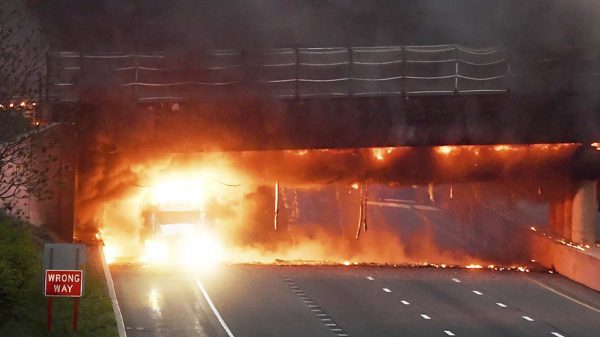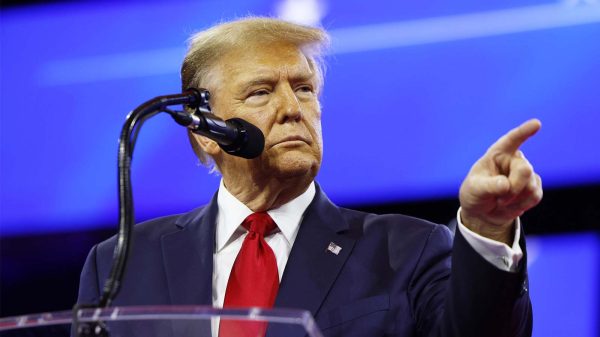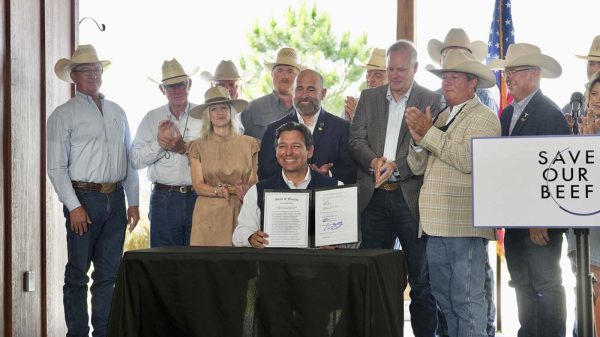There were a lot of events that led to American Independence, but it was on this day in 1765 that the seeds of revolution were planted in an angry Boston when protesters let their feelings be known about unjust taxes.
On August 14, 1765, outrage boiled over in the city. Protesters organized as the “Sons of Liberty” took to the streets in a very defiant act against British rule.
“The Sons of Liberty on the 14th of August 1765, a Day which ought to be forever remembered in America, animated with a zeal for their country then upon the brink of destruction, and resolved, at once to save her,” wrote Samuel Adams about that fateful day.
Adams was not part of the original group of men that formed an alliance called the Loyal Nine to protest against the British, but that small group evolved into a bigger organization as middle-class colonists grew more upset.
The Bostonians were irate about a series of laws that forced colonists to pay taxes without representation in the British parliament.
A year earlier, Parliament had passed the Sugar Act, which cut import taxes in half on molasses (which was used to make rum) but also contained strict measures to collect taxes that most colonists had avoided paying.
On March 22, 1765, British Parliament passed the Stamp Tax. It required colonists to pay taxes on every page of printed paper they used. The tax also included fees for playing cards and dice.
The reaction in the colonies was immediate and intense. The protests were based on legal principles that only the colonial legislatures had the power to tax residents who had representatives in those legislatures. Some colonies had official agents to Parliament, like Benjamin Franklin, but no colonies had sitting representatives in the British Parliament.
That summer, Massachusetts called for a meeting of all the colonies – a Stamp Act Congress – to be held in New York in October 1765. Committees of Correspondence were also formed in the colonies to coordinate protests against the Act.
In Boston on August 14, 1765, the Sons of Liberty met under what was known as the Liberty Tree near Boston Common. Hoisted on the tree was an effigy of Andrew Oliver, the city’s stamp tax agent. Soon, a mob of several thousand people attacked Oliver’s office and his home, and the effigy was stomped, decapitated and burned.
News of the protests, the actions of the Stamp Congress, and the publication of Patrick Henry’s Virginia Resolves fueled anger across the colonies, and many colonies saw their own versions of the Sons of Liberty created.
The Parliament repealed the Stamp Act the following year, facing additional pressure from British merchants who saw their sales to the Colonies plummet. But Parliament then passed the Declaratory Act, which stated its right in principle to tax the colonies as it saw fit.
The Sons of Liberty were formed in early 1765 in the port cities of Boston and New York as concerns grew among colonists about more taxes and more control by the British government in the aftermath of the French and Indian War.
They took their name from a speech given in February 1765 on the floor of Parliament by an Irishman, John Barre, who deeply opposed the proposed Stamp Tax on the American colonies and questioned Parliament’s motives.
“As soon as you began to care about them, that care was exercised in sending persons to rule over them, in one department and another… sent to spy out their liberty, to misrepresent their actions and to prey upon them; men whose behavior on many occasions has caused the blood of these sons of liberty to recoil within them,” Barre said.
In the years following the Stamp Act riots, the use of a Congress of the Colonies and the Committees of Correspondence were components of the independence drive a decade later.
One symbol that didn’t survive was the Liberty Tree. British troops felled the tree, which hosted the iconic scene of the Stamp Act protests and, later the planning of the Boston Tea Party, in August 1775.
















Coming soon will be a day, (20 years from now), they’ll call ‘Freedom Day’. It will be a day remembered when a militia of 7K American patriots stormed the White House, killing everyone inside, taking stock of whose still on the list and not in a body bag, going out, finding them and killing them – ALL OF THEM. This will take some time, but they will all be ferretted out and killed…one by one over the course of time. Robespierre wasn’t all wrong…
The day is coming soon. WATCH AND LEARN.